Civil rights attorney L. Chris Stewart was sitting in church in Atlanta on an April Sunday in 2015 when he received a Facebook message with a news article and a plea from a friend. A police officer had killed her cousin, Walter Scott, and she needed help.
Later that day, his phone rang in the middle of an engagement photo shoot with his fiancée. This time it was Walter Scott’s brother.
“They’re lying about my brother,” Stewart recalled him saying. “If you can get here by tomorrow, you’re hired.”
Stewart, 40, is among a growing group of prominent civil rights attorneys in the country who have become the go-to for families of black men who have been killed by police. They are confidants and counselors, helping their clients navigate not just their cases, but the media and the public during one of the worst times of their lives.
Generations ago, civil rights attorneys fought against segregation, and to secure rights denied to African Americans, Stewart said.
“The current battle is staying alive to use those rights,” he said.
Stewart did take the Walter Scott case, and would end up using a tactic that turned Scott’s death into a national rallying cry against excessive force by police. Before Stewart, there was Benjamin Crump, who helped tell the world about Trayvon Martin, a teenager killed by a neighborhood watch volunteer in Florida, and S. Lee Merritt, who helped bring attention to the death of Jordan Edwards, a teenager shot and killed by a suburban Dallas police officer.
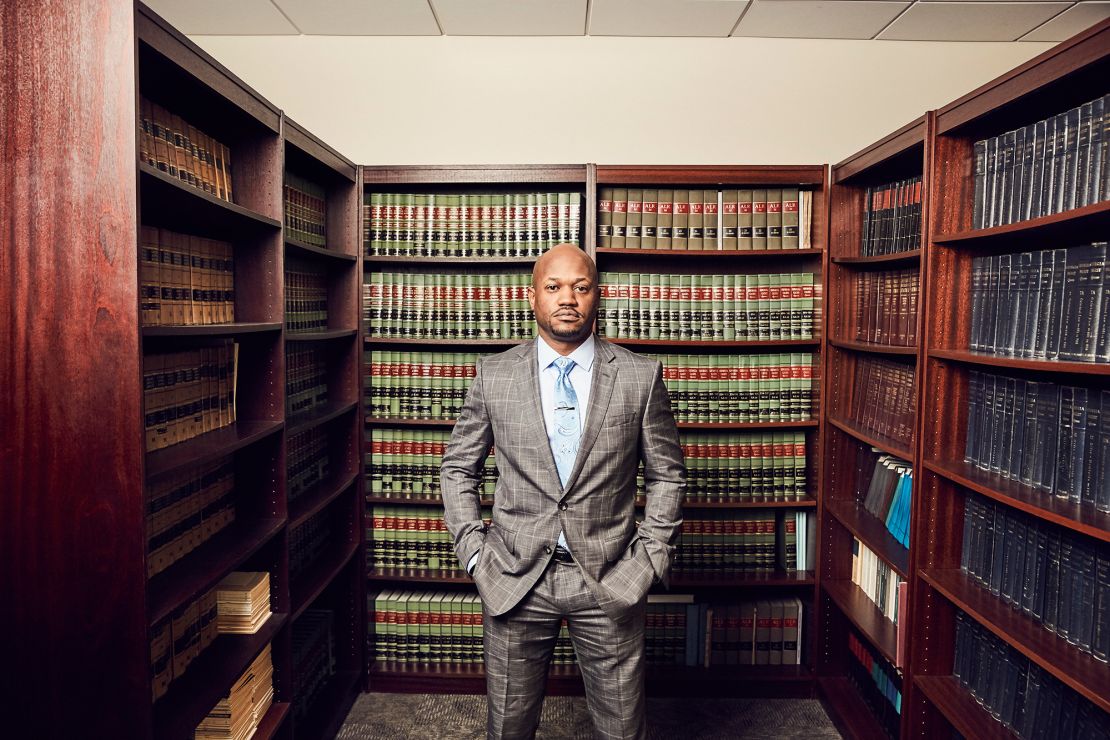
In a series of interviews, the attorneys spoke to CNN about their work, their motivations, and their goals.
The lawyers practice in an age where cell phone and body cameras have captured fatal encounters with police. Their tactics are strategic and media-savvy. Their goal is to hold abusive officers accountable and force systemic changes in policing in this country.
“When you hear us advocate, we’re not advocating for a settlement, we’re advocating for an indictment,” Merritt said. “We’re advocating for a conviction.”
The video that changed the narrative
Stewart arrived at the Scott family home in North Charleston, South Carolina, in the middle of the night, the day after Walter Scott was shot dead. He carried only a duffel bag and two suits, thinking he wouldn’t be there for long.
Stewart didn’t go home for two months.
“They started having to FedEx me suits and clothes,” he said.
As an attorney, Stewart had mostly handled sexual assault cases in his career. In 2014 he took on the case of Gregory Towns, who died in police custody after two East Point, Georgia, officers used a stun gun on him while he was handcuffed. Both officers were convicted, including one for murder, according to CNN affiliate WSB-TV. The family and city also settled a lawsuit.
Walter Scott’s family had heard about that case – and so they reached out to Stewart.
The family was not convinced that the police account of what happened to Scott was accurate. Police said at the time that an officer pulled Scott over for a broken tail light and a foot chase followed. The officer said he used a stun gun on Scott; Scott tried to take that weapon and the officer shot him.
“We knew my brother and what he was about,” Anthony Scott told CNN. “He was never the type of guy that would fight a cop.”
The family would later learn that Feidin Santana, a bystander, had recorded Walter Scott’s last moments.

Santana had sent a screenshot of the footage to a Black Lives Matter activist, who told Scott’s family about it.
Santana went to the home of another one of Walter Scott’s brothers to meet Stewart and his co-counsel, Justin Bamberg. But Santana didn’t want to stay there; he was scared for his life. They drove around and finally settled on a secluded parking lot, Stewart said.
It took Stewart and Bamberg several hours to convince Santana to show them the video and give it to them. It showed North Charleston police officer Michael Slager shooting Scott in the back as he ran away. “This can’t be real,” Stewart remembered thinking when he saw the video. “A police officer wouldn’t just unload on somebody like that.”
Late that night, the lawyers turned the video over to the South Carolina Law Enforcement Division. The state agency released it to the public days after Scott was killed.
The video changed the narrative of the shooting and sparked outrage across the country.
Slager was charged with murder and fired. Stewart also helped to secure a $6.5 million settlement for the Scott family.
But Slager’s murder trial ended in a hung jury in December 2016. Everyone lost hope, but “we just never gave up on it and kept pushing,” Stewart said.
A year later, Slager was sentenced to 20 years in a federal prison after he pleaded guilty to violating Scott’s civil rights.
Filled with gratitude, Stewart and Scott’s family gathered in a back room in the courthouse with the lead prosecutor after the sentencing.
They held hands in a circle and prayed. Stewart asked Scott’s mother, Judy, to speak to the media.
Facing reporters, she held a framed photo of her son against her chest as the nation watched. Stewart spoke first.

He called it “a historic day for civil rights, particularly in officer-involved shootings.” Stewart wanted to convey the magnitude of such a sentence for a police officer. It was the “best of inadequate justice” that civil rights cases get, he said recalling that moment. “This is all people crave, is accountability.”
“Nine out of 10 times, the families don’t get justice, the community doesn’t observe justice and it’s just written off,” Stewart said. “And it just goes away, then it’s just kind of a lasting open wound.”
The work takes its toll
In April 2017, Roy Oliver, then an officer in Balch Springs, Texas, opened fire on a car full of teenagers as they drove past him leaving a party. Police claimed they had heard gunshots outside the house; Oliver said he thought the car was moving aggressively toward his partner.
A bullet struck 15-year-old Jordan Edwards, a passenger in the car, in the head, killing him.
Details of the killing seep into attorney Merritt’s dreams, giving him nightmares – like the way Jordan’s brothers described him getting shot, smoke rising from Jordan’s forehead.
“Instead of it being Jordan, it’s my 9-year-old,” he said.
Civil rights law is not an easy field, the attorneys say. Cases take years to settle. The work is disruptive.
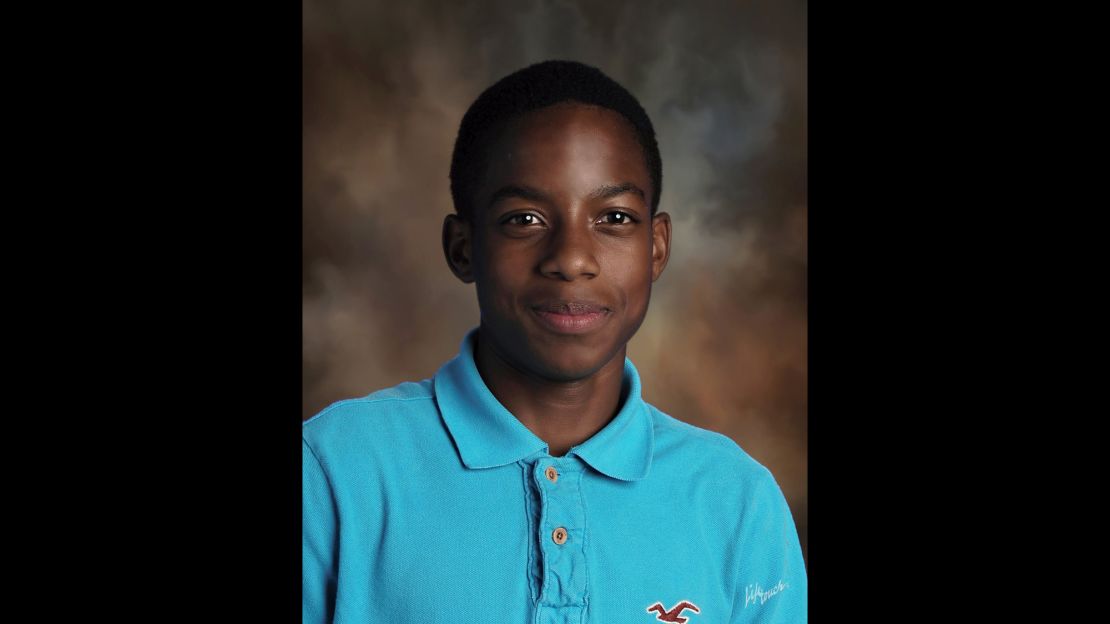
Merritt has struggled with depression. Online trolls forced Stewart to hire private security at his house during the Scott case, and again when he represented the family of Alton Sterling, a 37-year-old black father who was shot dead by one of two white officers who confronted him outside a Louisiana convenience store in 2016.
Crump, 49, has received threatening phone calls and letters over the years.
L. Chris Stewart, S. Lee Merritt and Benjamin Crump have bonded since serving on a panel at a National Bar Association conference over the summer. They talk often in a group text that includes other civil rights lawyers. The conversation is wide-ranging, jumping from legal strategy to college football to holiday greetings.
“What everybody respects about each other is that somebody’s stepping up doing this, because there are just not a lot of people that will take a civil rights case,” Stewart said.
Police-involved shootings rarely end in convictions. Jurors and the broader public often give police officers the benefit of the doubt, and there is often a high burden of proof. The federal statute used to evaluate police shootings, for example, requires a finding that the officer willfully or intentionally sought to kill someone.
Approaching new cases, the attorneys’ first step is to make sure enough evidence is available and that public pressure is strong enough for charges to be brought.
In Jordan’s case, Merritt took affidavits from witnesses and directed them to the district attorney’s office. A Dallas County grand jury indicted Oliver for murder about three months after the fatal shooting, and his case went to trial. After hours of deliberations, a jury convicted him.
Merritt also had success with this strategy when he took on the case of Botham Jean. Amber Guyger, an off-duty Dallas police officer, fired two shots at Jean after she says she mistakenly entered his apartment at a complex where she also lived.
Merritt’s office obtained an affidavit from a witness who said they heard knocking on Jean’s door shortly before Guyger, who lived directly above Jean, entered his apartment and killed him.
Merritt also called for Guyger to be fired and charged.
Guyger was indicted for murder on December 1. Her trial is set for September 23, according to CNN affiliate KTVT.
The roots of their strategy
Botham Jean’s mother, Allison, had traveled to the United States many times, but she wasn’t familiar with the justice system at the time of her son’s death.
Botham’s aunt, who lives in Florida, reached out to Crump. Allison Jean remembered him from his work representing Trayvon Martin’s family.
A Texas state senator recommended Merritt, but Jean still wasn’t sure. She asked a friend who was an attorney in St. Lucia to research Merritt. “Given what had happened to my son, I was looking at everybody with much apprehension,” said Jean, a former government official in St. Lucia.
But she quickly grew comfortable with Merritt, Crump and Daryl Washington, a Texas attorney. The three men spent up to 12 hours a day with her during her first week in Dallas, holding her hand at times, she said. Crump often checked to see if she had eaten.
“They met me at the hotel. They came to … the memorial service,” she said. “They met me at the (district attorney’s office). We just spent the entire day together, for an entire week. They never left my side,” she said.
Merritt kept the Jeans company one night after a Dallas County grand jury failed to indict Guyger in its first day of deliberation. He passed the time playing dominoes with Allison Jean’s husband.
“That helped to quell my anxiety,” she said.
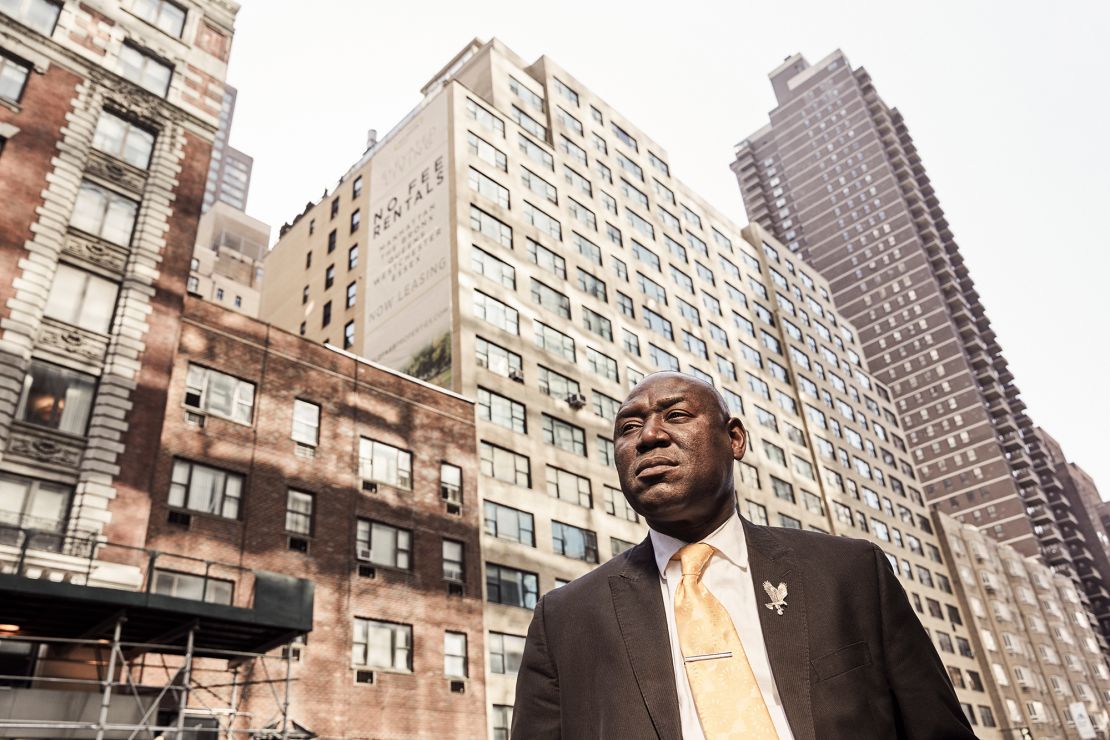
Getting to know the family and their loved one is a crucial part of representing these cases, Crump said. Crump has encouraged his clients to talk publicly about their loved ones to reshape the public narrative about them.
“We have never met these young people of color, who’ve been killed by the police, in life,” Crump said. “We only meet them in death. And we have to then bring them back to life in the media.”
Crump encourages the families to help the world know the person they knew, and not just the person described in a police report or shown in a grainy viral video.
“You are always going to be more effective in telling who Botham Jean was,” he told Jean’s family.
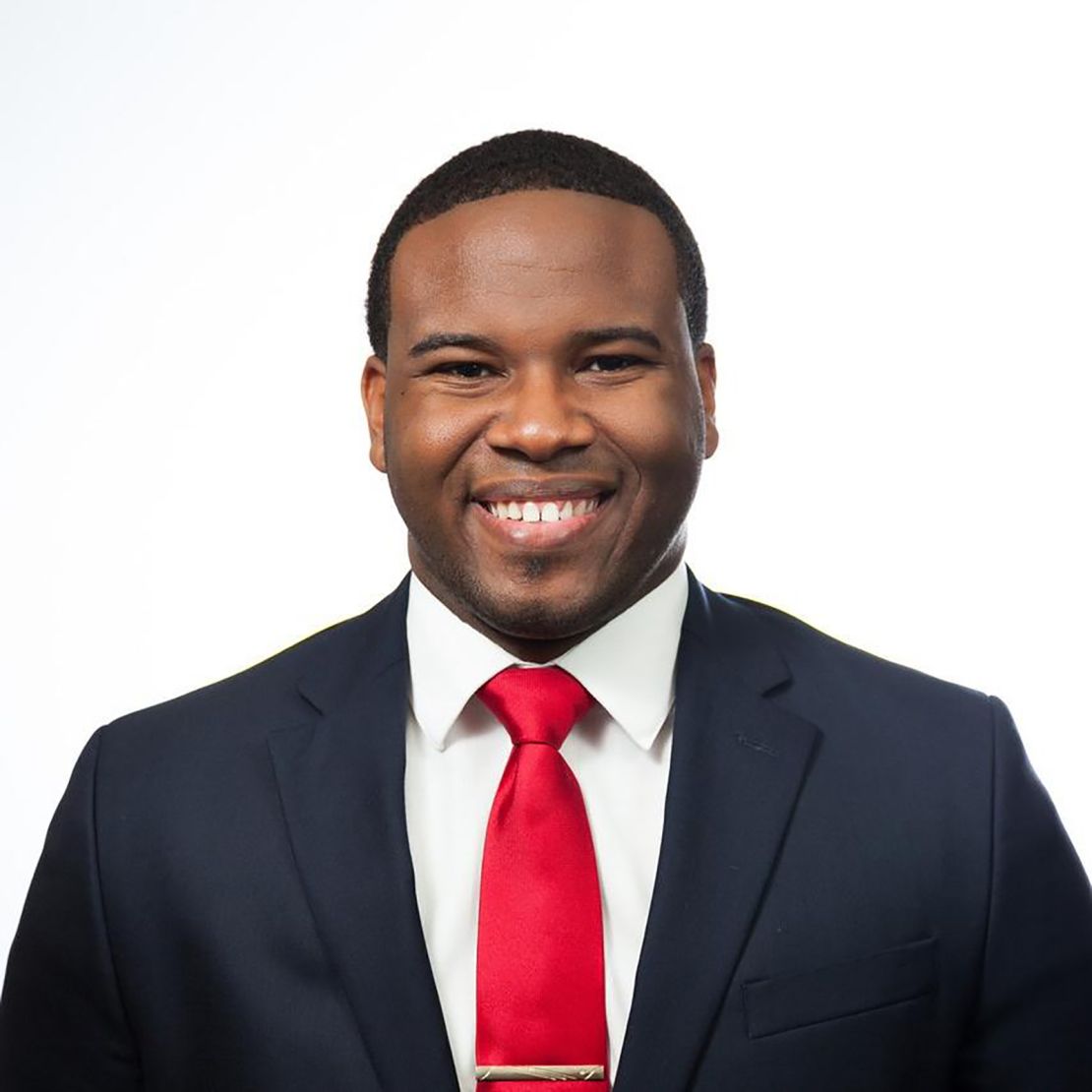
Because their legal strategy is often tied to media interviews and press conferences, some criticize the attorneys for sowing division – trying to grab headlines rather than finding common ground.
Charley Wilkison, executive director of the Combined Law Enforcement Associations of Texas, a police union, said police are often criticized and second-guessed, but they have the fundamental right to be presumed innocent until proven guilty.
While the criminal justice system does deserve criticism, he said, it’s still important to find common ground.
“While we’re preaching tolerance in the country, it kind of behooves all of us to find a middle, that’s just very unpopular right now in this country,” he said.
“The tolerance that they’re calling for is not being practiced,” he added.
In response, Merritt said that “when I or other attorneys call out law enforcement for the extremely hazardous, deadly culture that is unique in the world, it’s because it’s really bad.”
“I don’t know that they get that,” he said. “The black community gets it.”
How civil rights became their calling
Merritt, 36, rose to prominence after he represented Mark Hughes, the man Dallas police incorrectly identified as a suspect in the fatal shooting of five officers in a July 2016 protest against police-involved shootings.
Merritt said he started a campaign “to clear him in the eyes of the public.”
He learned much of this legal strategy from Johnnie Cochran, the lead attorney defending O.J. Simpson when he was accused of killing his ex-wife, Nicole Brown Simpson, and her friend, Ron Goldman. “Cochran used to play his cases out in the media, use the media to create political pressure,” he said.
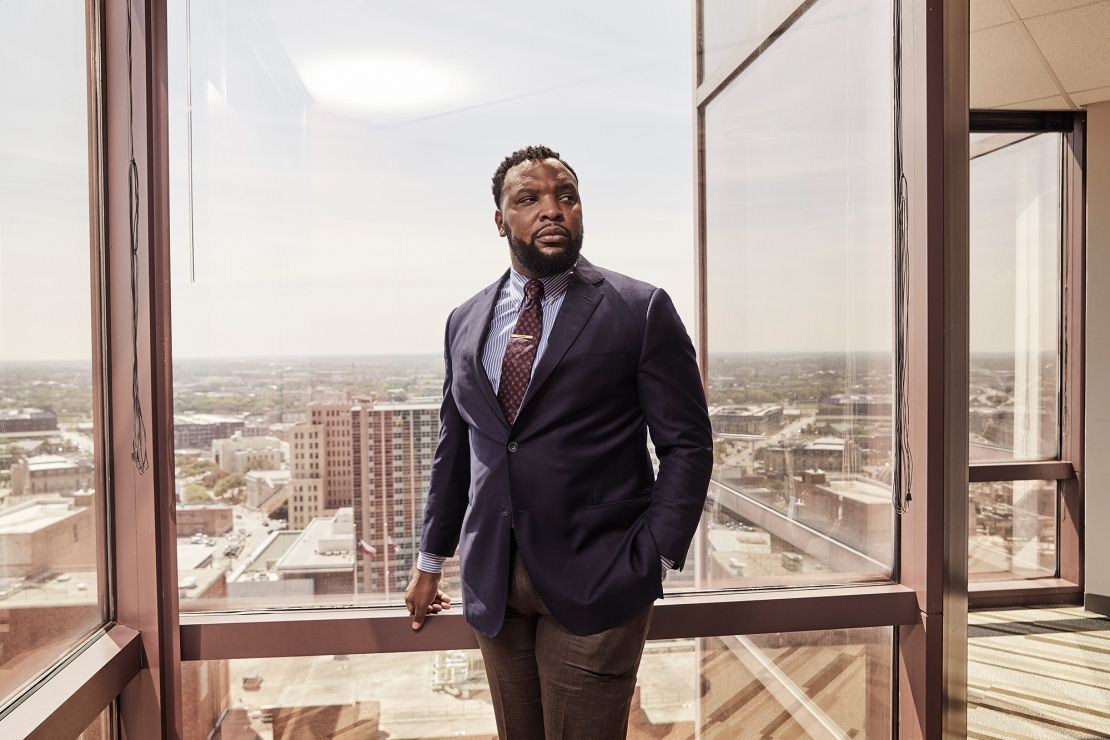
Crump credited Supreme Court Justice Thurgood Marshall as his inspiration to practice law. In elementary school, Crump was bused to a new predominantly white school in Lumberton, North Carolina. His mother worked at a factory and a hotel for little pay.
He learned from his mother and teachers that he could attend the school because Marshall, then an attorney for the NAACP, argued Brown v. Board of Education before the US Supreme Court, leading to the desegregation of public schools.
“I want to be like Thurgood Marshall because I want to make it good for people who live in my community and people who look like me,” Crump said.
His respect for Marshall even influences how he decides which cases to take. A case must “shock my conscience,” he said.
Stewart’s conscience was shocked by the injustice he saw in a small Florida town more than a decade ago. The Tulane University graduate, who studied public health, found himself angry as he sat in a room in Florida with an attorney and residents who believed they were sick with cancer.
At the time, Stewart worked for the Environmental Protection Agency, monitoring cancer clusters in low-income communities. Stewart heard the lawyers for the company that owned a chemical plant near a water source – the suspected cause of the cancer – laughing about golf in another room.
That flippant attitude angered Stewart.
“If I see something wrong and I think I can do something about it, then I do something about it,” he said.
Lesser-known figures on the front lines
For every one of these attorneys in the national spotlight, there are many others addressing civil rights issues around the country.
Before Michele K. Rayner-Goolsby was born, her parents were among some of the first black students to enroll at the University of South Florida in the 1960s. Her parents taught her to help others and lift her community up as she advanced. She recalled watching her mom, who was a social worker, give a bag of groceries to a homeless client they found standing in front of a grocery store.
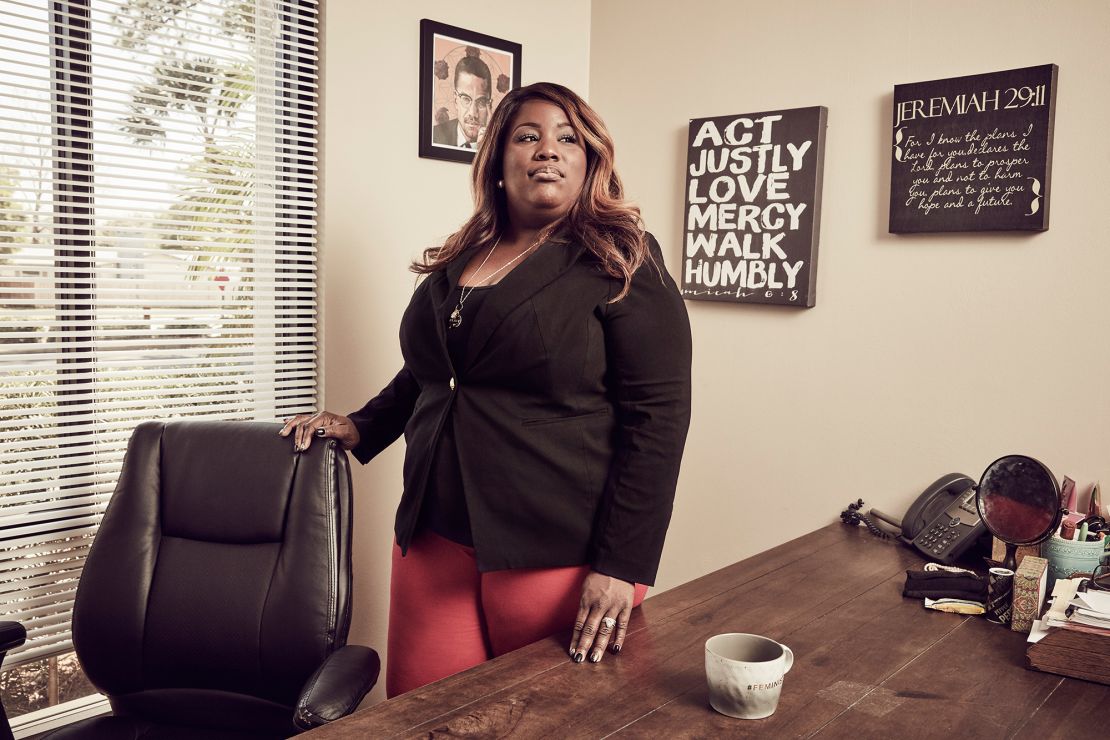
Rayner-Goolsby hadn’t planned to focus on civil rights cases, but during an internship with a public defenders’ office in Florida she began to encounter clients who alleged their rights were violated.
Today, the 37-year-old attorney represents the family of Markeis McGlockton, an unarmed black man who was fatally shot last summer during an altercation over a parking space at a convenience store in Clearwater, Florida, her hometown.
Pinellas County Sheriff Bob Gualtieri initially said he wouldn’t arrest Michael Drejka, the man who shot McGlockton, citing the state’s “stand your ground” law. The law grants immunity to a person who uses deadly force if they reasonably believe it is necessary to prevent imminent death or great bodily harm, or to prevent a forcible felony.
Rayner-Goolsby spent that weekend protesting the department’s decision. The next day, McGlockton’s family sought her help. Drejka was later charged with manslaughter.
He pleaded not guilty after he was charged last summer. His trial is scheduled to start in August, according to CNN affiliate WFLA.
Though her colleagues may have gotten more national attention in recent years, Rayner-Goolsby said “there are a lot of women and queer folks that are doing this work” who “are powerful voices right now on the front lines.” But they often get pushed aside for “male charismatic figures that are able to draw crowds,” she said.
The fight continues
As Stewart, Merritt and Crump have gained national attention, they’ve gotten more and more requests to take cases.
In recent years, Stewart’s office has gotten so many requests, he says he has had to turn down 90% of them.
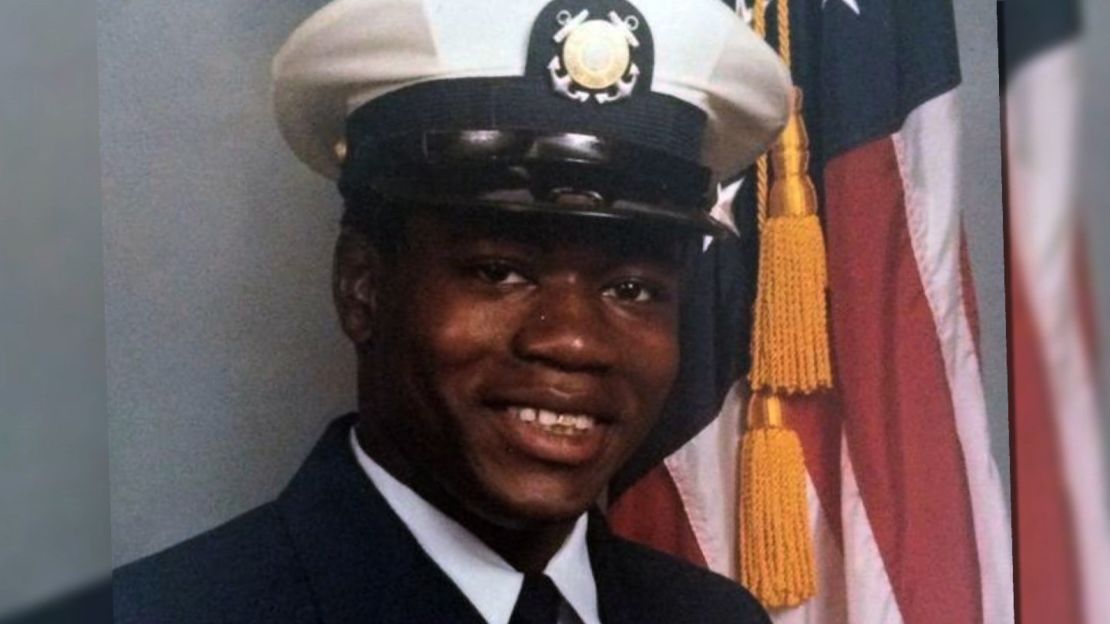
Stewart now represents the family of Antwon Golatte, a black man who survived being shot by Chicago police during a traffic stop in 2015, according to CNN affiliate WBBM-TV. A police review board later ruled the shooting unjustified. His family is suing the city and several officers.
Merritt is representing the family of O’Shae Terry, a black man who was killed by Arlington, Texas police officer Bau Tran while attempting to leave a traffic stop last September, according to CNN affiliate KTVT.
In May, a Tarrant County grand jury indicted Tran, 36, for criminally negligent homicide, according to court papers.
Tran has not yet entered a plea, according to the Tarrant County Criminal District Attorney’s Office.
“He intends to plead not guilty and we’ll fight the charges in court,” Tran’s attorney, Robert L. Rogers, told CNN.
And Crump is representing the family of Corey Jones, a stranded black motorist who was killed by a plainclothed Palm Beach Gardens police officer in 2015. The officer, Nouman Raja, was convicted of manslaughter and attempted murder. In April, he was sentenced to 25 years in prison.
Sometimes, Stewart said, his gut tells him whether he should take a case.
That feeling came as he stood in the Scott family home that night in North Charleston with a duffel bag and two suits.
The family matriarch, Judy Scott, prayed for understanding and for truth to come out as everyone held hands in the kitchen. Stewart stood there quietly. And in that moment, he said, he knew he was doing the right thing.



